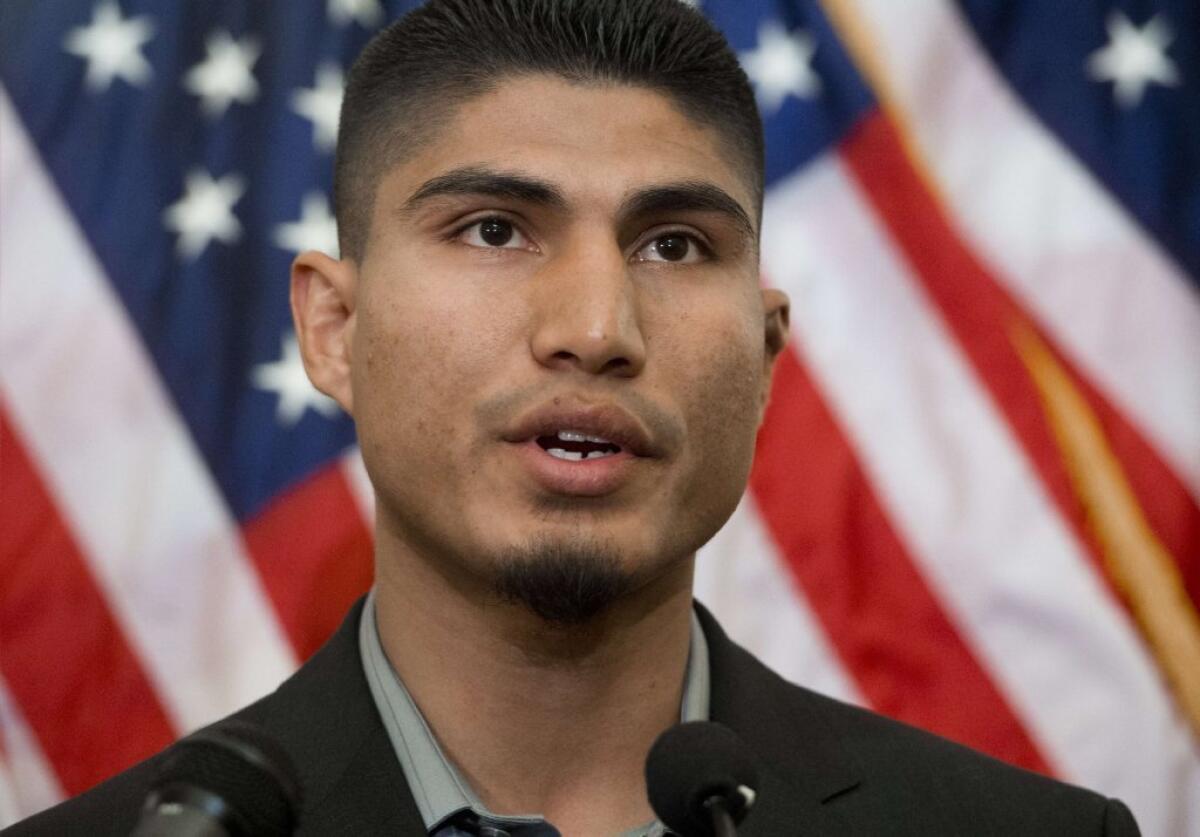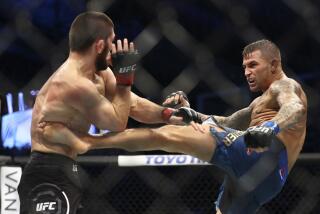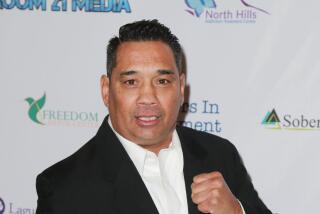Clinical study of fighters’ brains gets new funding from promoters

- Share via
They might not agree on doing business with one another and may compete over fight dates, but fight promoters Top Rank, Golden Boy and Ultimate Fighting Championship are acknowledging the effects of their sports.
The companies, along with Bellator MMA and Glory kickboxing, combined to give $600,000 to continue the Cleveland Clinic’s brain health study that is in its third year of operation in Las Vegas.
“We’re all contributing to it, fighters want it and senators are supporting it,” Top Rank Chairman Bob Arum said.
Sens. Harry Reid (D-Nev.) and John McCain (R-Ariz.) both attended a news conference to announce the funding this week in Washington.
“As a former boxer, I know first-hand the toll that a fighter’s body takes when he or she is in the ring,” Reid said in a prepared statement. “I want to thank the Cleveland Clinic and the leaders of the … fighting organizations for bringing awareness to this important issue facing professional sports today.”
More than 400 fighters have already been evaluated in the program, known as the Professional Fighters Brain Health Study, and the goal is to track 625, with follow-up measurements taken by MRI.
The study is working to track changes in brain activity that happens with fighters, while trying to establish who is more susceptible to chronic damage, and why. The hope is that the findings will have application to others, such as military veterans, Alzheimer’s disease patients and more.
Dr. Charles Bernick, who’s heading the study, said the most important findings will come from following the same fighters “over five, six years at a time.” Some fighters have already been scanned three times, Bernick said.
World champion boxer Mikey Garcia of Oxnard was among those in Washington to announce the funding. “The willingness of these organizations to support research into the effects of contact sports on brain health indicates their willingness to take very seriously the welfare of their boxers and fighters and demonstrates that they recognize how crucial fighter-safety is to the long-term viability of their sports,” McCain said in a prepared statement.
“I am hopeful that their funding for this study will advance our understanding, diagnosis, and treatment of brain trauma and support similar research efforts going well beyond the ring.”
Bernick called the mass involvement “a great response.”
“We want to see if the changes we’re seeing can help others,” Bernick said. “We have some preliminary evidence that these changes are not the same with everybody, they’re subtle. With the decreasing volume of parts of the brain, you can see greater disruption in the connections. It gives us confirmation some small changes can be detected.”
That’s a point the additional funding can help further explore, he said.
“Does that lead to changes in their memory, behavior?” Bernick said. “Maybe we can pick out people who are at a higher risk of damage, figure out the safety dimensions.”
Bernick expects to publish reports on the findings later this year.
ALSO:
Bode Miller, Julia Mancuso shine in downhill training
Olympics: Canadian snowboarders vs. Shaun White, Day 2
Martin St. Louis added to Canada’s Sochi Olympics hockey team
Twitter: @latimespugmire
More to Read
Go beyond the scoreboard
Get the latest on L.A.'s teams in the daily Sports Report newsletter.
You may occasionally receive promotional content from the Los Angeles Times.











